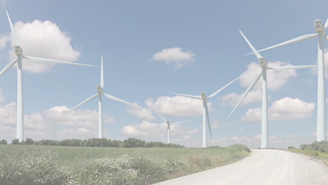The Royal Commission Report: a new path for the Australian finance industry?
On Monday 4 February, the final report from the Royal Commission inquiry into misconduct in the Australian financial sector was published. It contained a scathing review of years of misconduct and of the failures by regulators to appropriately supervise and hold companies accountable. The report also provided 76 recommendations to fix these issues.
Water Risks in Extractive Industries
Water is an important natural input for mining, as extractive operations rely heavily on this natural resource to process the ore. However, the impacts of climate change (higher temperatures and more extreme, less predictable weather conditions) are affecting the availability of water resources globally.
Risk Exposure in a Changing Climate: The Story of PG&E
The destructive California wildfires in November 2018 once again focused investor attention on climate-change related risks. PG&E, the largest utility in the United States, has stated the fires were very likely caused by its equipment. The company has since announced it will file for bankruptcy protection at the end of January in what is being called the highest profile climate-change bankruptcy to date. The company’s expected liabilities from the devastating wildfires in 2017 and 2018 are estimated at over USD 30 billion and the company’s share price has dropped by over 90% since before the 2017 fire. It is currently unclear what would happen in the event of PG&E filing for bankruptcy protection, but state legislators have mentioned the possibility of breaking up the utility, selling off assets, or converting it to a publicly-owned company.
Searching for Solutions to Ocean Plastics
Over the past year, the public, regulators and investors have expressed growing concerns about the problem of ocean plastics. While some organizations have pledged to address the issue, our analysis of 4,575 companies in the sectors that generate most of the plastic waste on the planet reveals that less than 1% of these firms mention the phrase “ocean plastic” or “ocean health” in relevant corporate documents. This finding suggests a low level of strategic awareness about ocean plastics among companies exposed to the issue despite clear interest among consumers, law-makers and investors.
Palm Oil and Deforestation: a missed window of opportunity for the RSPO?
In August 2018, 90 institutional investors representing USD 6.7 trillion in assets sent a letter to the Roundtable on Sustainable Palm Oil (RSPO) expressing their concern over deforestation and the disconnect between leading corporate policy commitments and the RSPO standards.
Industry expert Jon Hale shares his views on attempts to discredit sustainable investing
In a new Medium article highly worth the read, Jon Hale, Global Head, Sustainable Investing Research at Morningstar, writes about recent misleading attacks on the credibility of ESG assessments and sustainable investing. He takes aim at a critical report from The American Council for Capital Formation, a Washington D.C. policy group financed by the National Association of Manufacturers, the fossil fuels industry and various other corporate lobbying organizations.
Beyond footprinting: How can investors manage carbon risks in their portfolio?
Institutional investors are facing increased pressure from customers, regulators and civil society to become more responsive to the threat of climate change. Over the last few years, there have been several developments that encourage investors to integrate risks associated with climate change into their decision-making (see timeline below). In addition to the impact of their investment, they need to address the effect climate change will have on their investment. This will manifest in both physical risk – through floods, draughts, extreme weather events, etc. – and carbon risk (also referred to as transition risk).
Celebrating a diversity of approaches to sustainable investing
I recently traveled from the US to Europe to learn about the major market differences in sustainable investing. For context, investors long rooted in sustainable investing practices have viewed the general US market as lagging compared to Europe. As it pertains to values-based investing, I agree. However, the US has embraced ESG integration in a very sophisticated and pioneering way as it relates to risk mitigation.
Regulating the Chemicals Industry: How does REACH impact Companies?
Chemical substances are part of our daily lives. They are found everywhere from the cleaning detergents we use to the clothes we wear and our personal electronics. The companies that produce these chemicals, some of which can be hazardous and have a negative impact on human health and the environment, are exposed to several risks and are highly regulated. In Europe, the Registration, Evaluation, Authorisation and Restriction of Chemicals (REACH) regulation focuses on ensuring the safe use of chemicals, as well as the phasing-out of the most harmful chemical substances. As the third and final REACH registration deadline approaches, we take this opportunity to look at the impact of chemical regulations on the sector and investors.



















